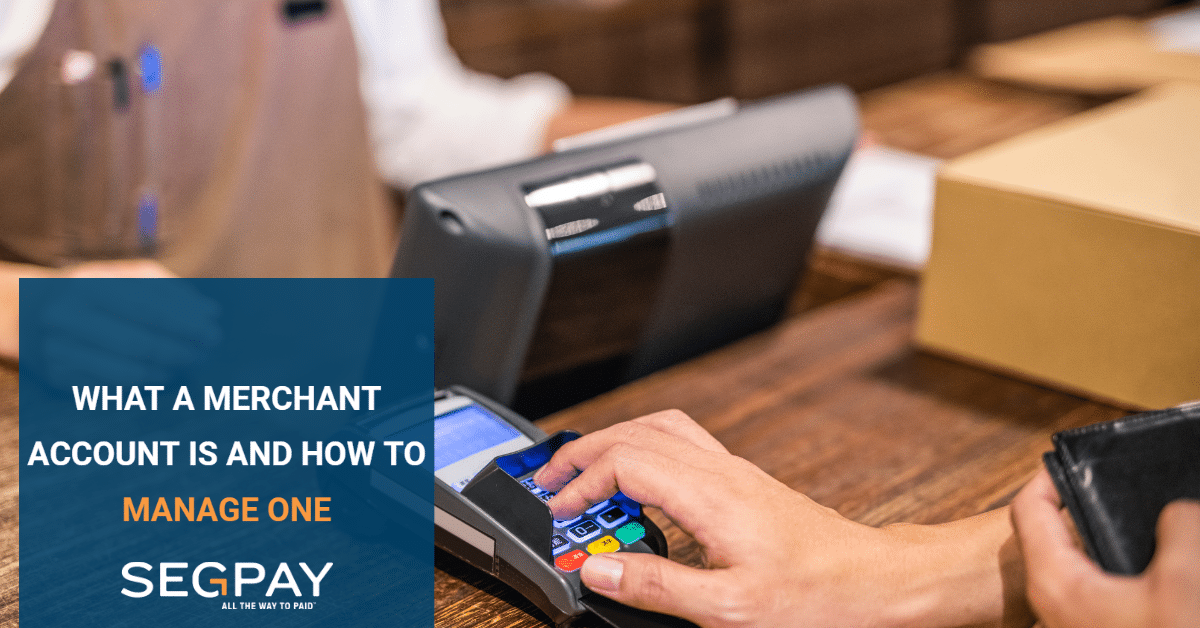- 5 minute read
Do you ever find yourself marveling at the efficiency of online transaction processing? As we journey through the 21st century, the world of commerce is rapidly transforming, tilting further into the digital realm and, realistically, beyond even that. This shift has brought to light the increasing necessity for robust, reliable, and speedy payment processing systems. Nestled at the heart of this digital revolution lies a crucial element – the elusive ‘merchant account.’
But what exactly is a merchant account? How does it manage to carve such a mark on the canvas of online business operations? Could your business potentially harness its power to enhance transaction efficiency?
This article aims to unravel these questions and more. We’re setting out on a comprehensive exploration, charting the terrain of merchant accounts, their pivotal role in the e-commerce landscape, the costs entwined with their operation, and the steps to secure and manage one effectively.
What is a merchant account?
Holding a pivotal role in the digital commerce ecosystem, a merchant account is more than just a bank account. Specifically engineered for businesses, a merchant account is your golden ticket to accepting and processing electronic payment transactions, with credit and debit cards taking center stage.
Imagine a scenario: a customer purchases goods from your online store using their credit card. Where does this money initially go? The merchant account passes the data through to the acquirer and debits the account of the consumer at the issuing bank. The funds then pass back through to the acquiring bank and are ultimately settled to the merchant’s bank account. This account serves as a secure intermediary that holds funds from card transactions before transferring them to your primary business bank account. This critical component forms a part of the broader concept of merchant services.
What are the associated costs and fees of a merchant account?
Like most financial services, merchant accounts come with a price tag. Fees can vary from one provider to another, but here’s a snapshot of the typical fees you’ll encounter:
- Setup fee: This is an initial charge for establishing your account. While some providers might waive this fee as a promotional offer, others may require it.
- Monthly or annual fee: This is a recurring cost for account maintenance. It usually includes access to customer service, online reporting, and other basic account management tools.
- Batch fee: Imagine a group of transactions getting processed together as a ‘batch.’ Each time this happens, a ‘batch fee’ fee applies. Though it might seem small and insignificant, these fees can stack up when dealing with high transaction volumes.
- Chargeback fee: Picture a scenario where a customer successfully disputes a transaction. In such cases, a ‘chargeback fee’ surfaces. This fee is meant to cushion the blow of administrative costs incurred during the chargeback handling process.
What pricing models are used for transactions?
Merchant services navigate a sea of diverse pricing models. So, which ones are you most likely to cross paths with?
- Flat-rate pricing: Picture a simple, straightforward pricing model where each transaction, regardless of its type, gets charged a fixed percentage. This model, known as ‘flat-rate pricing,’ is as predictable as it gets. Due to its simplicity, it has become a preferred choice, especially among small businesses.
- Interchange-plus pricing: Imagine a pricing model that introduces a fixed charge plus a percentage of the transaction. Sounds a bit more complex, doesn’t it? This model, known as ‘interchange-plus pricing,’ roots its structure in the interchange rates set by credit card networks. The ‘plus’ part? That’s the provider’s markup. Although it might seem more complicated, it offers a shining beacon of transparency.
- Tiered pricing: In this model, transactions get classified into different tiers, each with varying rates. While it can be somewhat less predictable than flat-rate pricing, it can potentially save money on certain types of transactions.
How does one apply and qualify for a merchant account?
You may be thinking, “How can I get a merchant account?” The application process involves presenting your business to a potential financial partner. It’s akin to applying for a loan—you’re required to provide information about your business’s financial health, the nature of products or services, and expected transaction volumes. In addition, your personal credit history may also be evaluated.
Are there alternatives to merchant accounts?
“What if a traditional merchant account isn’t the right fit for my business?” Great question! There are several alternatives, such as Payment Facilitators like Segpay, PayPal, and Stripe. These services process transactions on your behalf, eliminating the need for a merchant account.
Similarly, money transfer services like Venmo and Zelle provide another feasible option, particularly for smaller businesses and freelancers. While these alternatives might not offer all the features of a full-fledged merchant account, they can be simpler to use and require less financial commitment.
How can a merchant account be managed effectively?
“Once I get a merchant account, how can I manage it effectively?” The key to successful management lies in regular monitoring of transactions, understanding your fees, managing chargebacks, staying compliant with security standards, and consistently reassessing your business needs.
Frequently Asked Questions
What is a merchant account?
A merchant account is a type of bank account that allows businesses to accept and process credit and debit card transactions.
How do you get a merchant account?
You can apply for a merchant account with a provider who will assess your business’s financial stability and credit risk.
What are some alternatives to a merchant account?
Alternatives include Payment Facilitators such as Segpay, Stripe, .
What are the advantages of having a merchant account?
A merchant account facilitates a wide variety of payment methods, improves cash flow, and enhances customer convenience.
What factors can influence the cost of a merchant account?
Costs depend on your business type, transaction volume, risk level, and the merchant service provider’s pricing model.
Is there a risk of termination with a merchant account?
Yes, high chargebacks, fraudulent activities, or agreement violations can lead to account termination.
Can all businesses get a merchant account?
Most businesses can, but high-risk industries and small-scale businesses may face stricter approval processes or higher fees.
How does a merchant account affect customer experience?
A merchant account can enhance customer experience by offering flexible, fast, secure, and reliable payment options.
What is a payment gateway and how does it relate to a merchant account?
A payment gateway is an e-commerce service that securely transmits payment information from your customer to your merchant account.
Can a merchant account improve business credibility?
Yes, offering diverse and secure payment options via a merchant account can significantly bolster business credibility.
Embracing the Future of Digital Commerce
Peeling back the layers of a merchant account and mastering the art of managing one can unlock doors to streamlining your business operations. It can enable you to provide your customers with a fluid payment experience while supercharging your operational efficiency.
Imagine your business as a ship and your choice between a traditional merchant account or its alternatives as the rudder. The objective? Steer your ship in alignment with your unique business needs and goals. This choice can determine your business direction, and as your business grows, regularly reassessing your merchant account requirements becomes the compass that ensures you stay on the right course.
For a deeper dive into the world of merchant accounts and to uncover which type would align best with your unique business requirements, we invite you to explore further insights and guidance in this blog.
Want to learn more about merchant accounts?
Contact us today, we’d love to chat with you about our processing payment options subscription payments and which is best for you. It’s another way we are here for our merchants All the Way to Paid ™. Reach out to us with your questions at [email protected]



